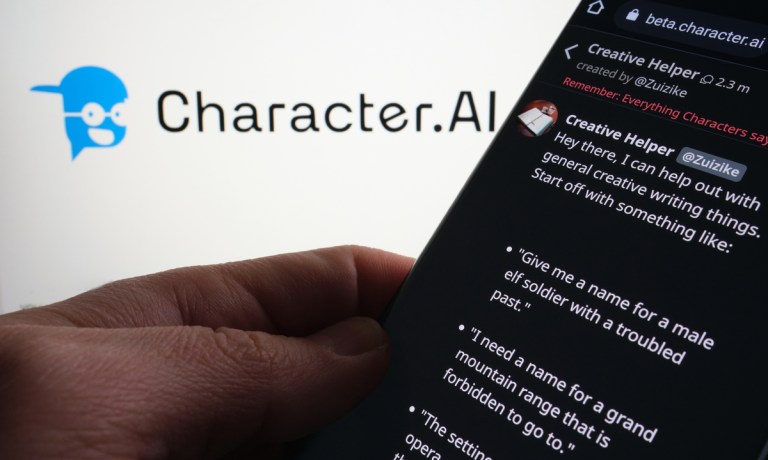The tech giant is in discussions to inject hundreds of millions into the artificial intelligence (AI) startup to fund its mission to train chatbot models, Reuters reported Friday (Nov. 10), citing sources familiar with the matter.
Another source said the investment could be structured as convertible notes. It would strengthen an existing collaboration between Google and Character.AI, which uses the former company’s cloud services and tensor processing units (TPUs) to train its AI.
As Reuters noted, Character.AI’s character-based chatbots have struck a chord with younger users who make up 60% of its web traffic, helping position the company as the maker of a more “fun” AI companion when put up against ChatGPT or even Google’s Bard.
Character.AI, founded by veterans of Google’s AI project DeepMind, announced earlier this year it had raised $150 million at a $1 billion valuation to fund the development of its AI-powered chatbots, some of which are modeled on fictional and historical characters and celebrities.
As PYMNTS noted in September, a review of the company’s character lineup showed AI versions of Elon Musk, Nintendo’s Mario, the late Michael Jackson and Saul Goodman, the criminal lawyer from the TV shows “Breaking Bad” and “Better Call Saul.”
Advertisement: Scroll to Continue
The Reuters report came at the end of a busy news week for AI, with — among other developments — OpenAI’s plans to launch a store where developers could sell their GPT models, and whispers of Amazon building a large language model code-named Olympus which is apparently double the size of OpenAI’s.
“With its Olympus effort, Amazon is showing that it ultimately doesn’t want to rely on other ecosystem players for the innovations it offers to its own captive customer base — while at the same time acknowledging with its Anthropic stake that those customers might want access to cutting edge AI solutions now and not later,” PYMNTS wrote.
Meanwhile, PYMNTS also recently examined the state of the AI co-pilot, noting that the “value of these models lies in their speed and the scale at which they can operate, as well as their ability to remove mundane and repetitive tasks from human workflows.”
Research from the PYMNTS Intelligence report “Consumer Interest in Artificial Intelligence” found that consumers interact with about five AI-enabled technologies each week on average, for tasks that include browsing the web, using navigation apps and reviewing online product recommendations.

